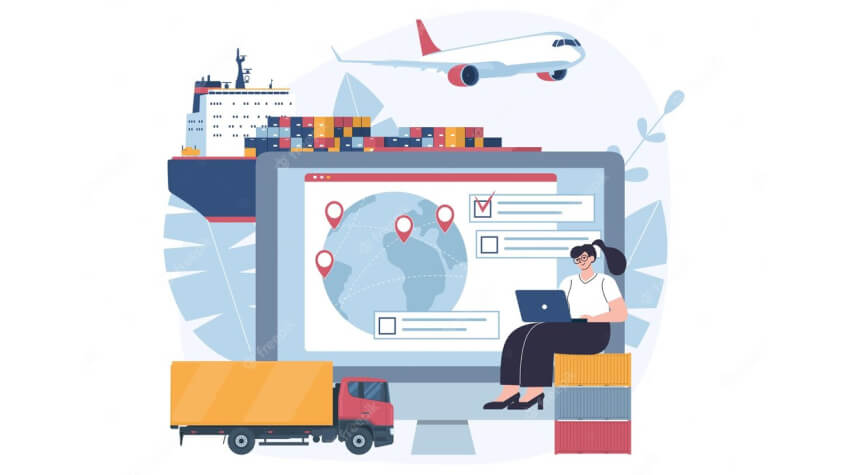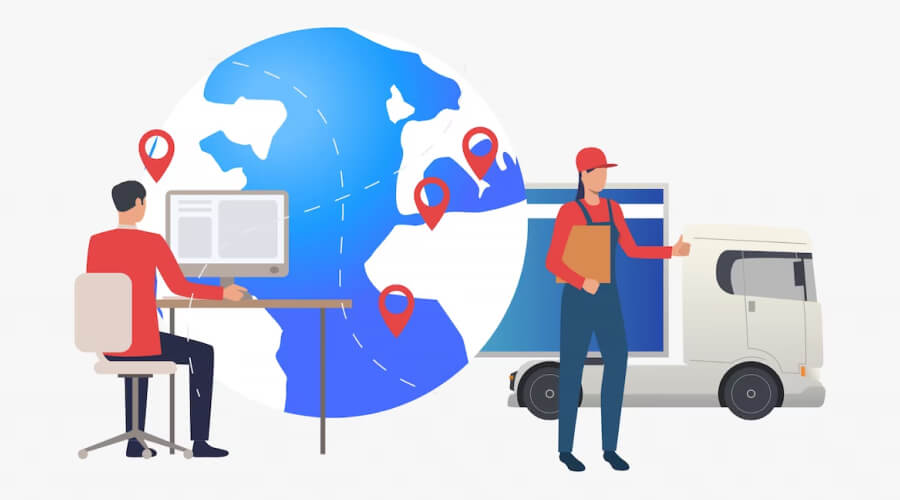
Logistics is a complicated and ever-changing sector that demands efficient and effective transportation management to stay up with rising demand. Companies must employ smart transportation Management software solutions to simplify their operations in order to satisfy the expectations of the current logistics business. In this post, we’ll look at the main reasons why transportation Management software is essential for logistics.
Is Transportation Management Systems and Transportation Management Software the Same Thing?
Transportation Management System (TMS) is a type of software solution that helps companies manage their transportation operations, such as planning, execution, and optimization of the movement of goods. A TMS typically includes features like route planning, carrier selection, load optimization, freight auditing, and reporting. Transportation Management System can be an independent software solution or part of a larger enterprise resource planning (ERP) system.
Transportation management software, on the other hand, is a broader term that encompasses any software solution related to transportation, including TMS. For example, transportation Management software could also include GPS tracking software, fleet management software, or logistics software. Therefore, while TMS is a type of transportation management software, not all transportation solutions are TMS.
Top Reasons To Use Transportation management Software in Logistics
1. Better Visibility
Transportation Management software monitors the flow of products in real-time. Thanks to logistics software development company services it enables logistics managers to follow shipment status, detect delays, and make educated choices to keep the supply chain running smoothly. This degree of transparency is especially beneficial when dealing with cross-border shipments or those involving many carriers. Logistics managers may have total insight over every part of the transportation process, including cargo location, customs clearance status, and delivery schedules, using transportation management software.
2. Savings on Expenses
Transportation management software, fortunately, may assist businesses in lowering transportation expenses by optimizing routes, combining loads, and choosing the most cost-effective carriers. Companies may save money on gasoline, maintenance, and other transportation-related expenditures by doing so. Additionally, transportation management software may assist businesses in lowering administrative expenses by automating operations like invoicing and payment processing.
3. Enhanced Efficiency
Several of the manual operations associated with transportation management software, such as load planning, carrier selection, and freight invoicing, are automated by transportation management software. This reduces mistakes and saves time, allowing logistics managers to concentrate on more important activities. Transportation management software, for example, may automatically allocate cargo to carriers based on predefined parameters including carrier availability, equipment type, and destination.
Read More: Warehouse Management Software
4. Increased Cooperation
Transportation management software improves communication among logistics teams, carriers, and suppliers. It offers a consolidated communication platform, making it easy to exchange information and rapidly address difficulties. Transportation software, for example, may enable carriers to deliver real-time information on the status of shipments, decreasing the need for human communication. Similarly, suppliers may utilize transportation management software to keep logistics managers up to date on inventory availability, allowing for improved shipping planning and scheduling.
5. Enhanced adaptability
The trends of logistics sector are continuously changing, with new difficulties and possibilities appearing regularly. Transportation management software gives logistics managers more flexibility, allowing them to respond to changing company demands. Transportation management software may assist logistics managers in identifying possible bottlenecks in the supply chain and taking remedial action before they worsen.

6. Security
It may provide logistics managers with real-time information about the location of shipments, allowing them to monitor the transit of products and detect any security issues. Additionally, transportation software can maintain the chain of custody, keeping track of who touched the items at each step of the transit process. When dealing with high-value or sensitive cargo, this degree of protection is very critical.
Conclusion
Transportation software is an absolute need in logistics. As the logistics sector evolves, it is critical for businesses to use innovative transportation software solutions in order to stay competitive and give the best possible service to their clients.






